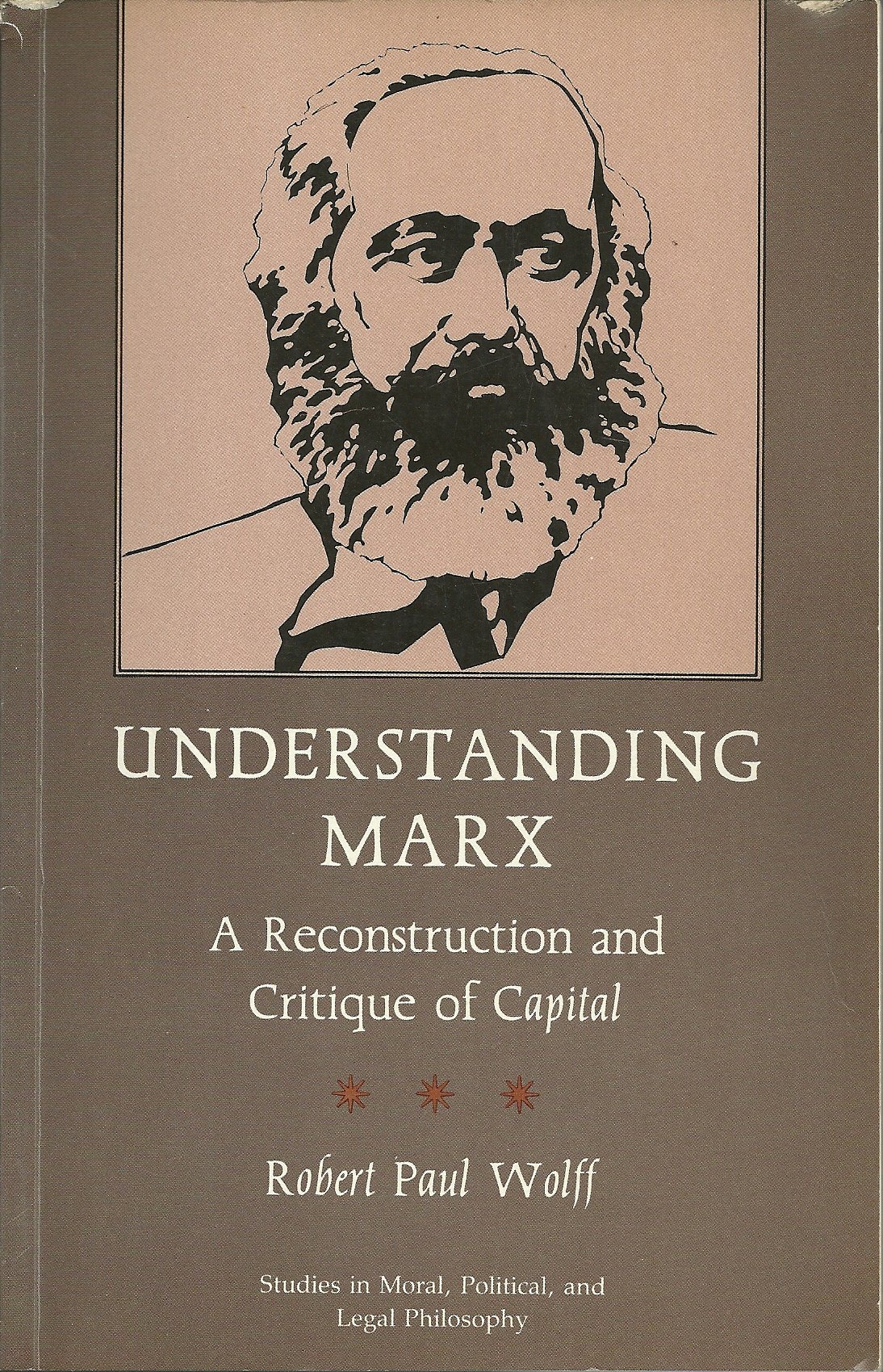 Robert Paul Wolff’s book is a critical introduction to Marx’s economic theory from someone who is sympathetic to his views about the exploitative nature of capitalism. He spends a lot of time on the theory of value, which is the main theme of the book. Given the centrality of that problem for Marx’s economic theory and, beyond Marx, for classical economics, this makes a lot of sense. Wolff shows how Marx’s labor theory of value goes back to Smith and Ricardo, but went beyond their analysis and tried to solve the problems with it. It’s really a wonderful book that anyone who wants to know more about Marx’s economic theory should read. Wolff is sympathetic to Marx, but unlike many other exegetes, he is willing to acknowledge when Marx got something wrong.
Robert Paul Wolff’s book is a critical introduction to Marx’s economic theory from someone who is sympathetic to his views about the exploitative nature of capitalism. He spends a lot of time on the theory of value, which is the main theme of the book. Given the centrality of that problem for Marx’s economic theory and, beyond Marx, for classical economics, this makes a lot of sense. Wolff shows how Marx’s labor theory of value goes back to Smith and Ricardo, but went beyond their analysis and tried to solve the problems with it. It’s really a wonderful book that anyone who wants to know more about Marx’s economic theory should read. Wolff is sympathetic to Marx, but unlike many other exegetes, he is willing to acknowledge when Marx got something wrong.
Indeed, it’s interesting that even though Wolff is no friend of capitalism, his book makes very clear that Marx’s economic theory is wrong on several important points. In particular, he shows that, except for a very limited class of economies, Marx’s claim that total monetary profit is equal to total surplus value in the economy is false. (As Wolff argues in the book, this claim is better understood as the claim that the ratio of total monetary profit to total surplus value is equal to the ratio of total monetary value of production to total labor value of production, if only for dimensional reasons.) This claim plays a crucial role in Marx’s analysis of capitalism, so the fact that it’s false in the general case is a serious problem, as Wolff acknowledges.
Wolff also explains that, as many people have pointed out before, the choice of labor as the substance of value is arbitrary. At least, since labor is on a par with other commodities in Marx’s formal analysis (which is arguably part of what makes it powerful), we could also come up with, for example, a food theory of value and it’s not clear why one should prefer the labor theory of value to it. Of course, Marx thinks that labor is distinct from other commodities in virtue of the fact that we can distinguish between labor and labor power, but as Wolff points out in the book, this distinction plays no role whatsoever in Marx’s formal analysis. Thus, regardless of whether you think there is something to be saved from Marx, you will probably benefit from reading this book.
You might be interested in this recent post by Matt Bruenig, detailing how a certain (rather conservative) kind of market socialism might work.
https://medium.com/@MattBruenig/nickel-and-dime-socialism-47fcec406295#.wyejrcao0
Thanks for the link, I’ll read this later.
“labor is on a par with other commodities in Marx’s formal analysis”–How can that be true when Marx repeatedly insisted that the price of labor was not subject to the law of supply and demand? He said that owners controlled the value of labor so completely that they could always set it as subsistence levels.
I always have the problem when people begin discussing Marx that I have yet to see a good or useful definition of capitalism. One formulation is that capitalism means wage labor, but all societies other than tribal ones have had wage labor for about 4000 years. Another is that capitalism means alienated labor, but most of the population of all countries were still farm laborers in Marx’s day, and were no more or less alienated than in any other century or millenium. Most of the medieval guild workers whose work most resembled that so inaccurately described by Marx as typical of pre-industrial work, worked for bosses for wages doing piece. In large businesses, they sometimes worked much like workers on a modern assembly line, with different apprentices doing different parts of the work–one mixing the paints, one painting the background, etc. A third distinction is that capitalism means someone other than the workers owns the means of production, but this also has been true of every monarch since Rameses I.
I need to see some definition of “capitalism” which excludes Louis XIV, Renaissance merchants, medieval guilds, Roman land-owners, and Rameses II.
I agree that it’s a problem, although I think Marx could probably have agreed with some of the things you say. Geoffrey Hodgson recently published what seems to be a good book on that question: https://www.amazon.com/gp/product/022641969X. I haven’t read it yet though, but it seems interesting and relevant to the issue you raise.